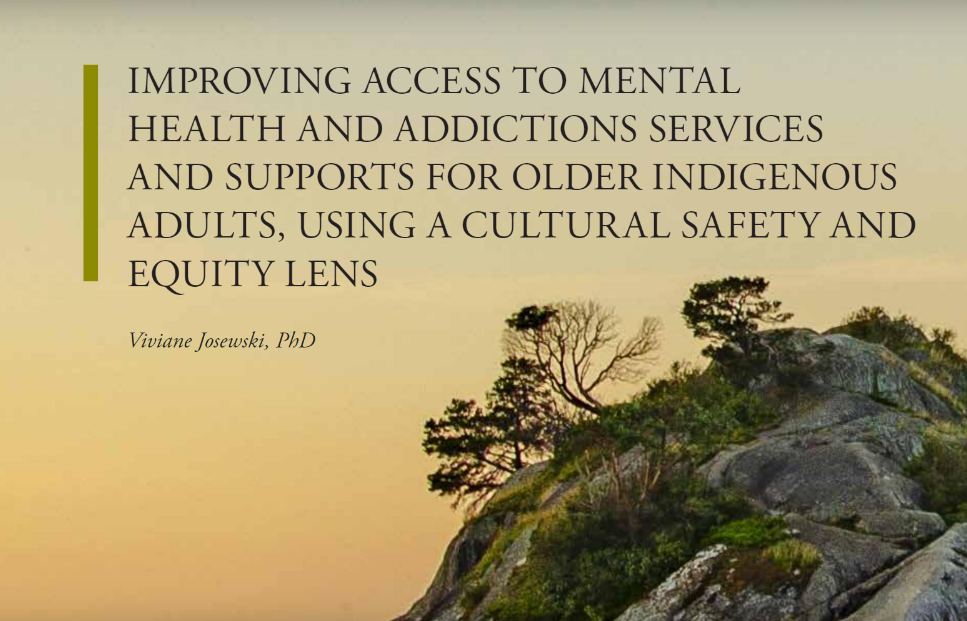Improving access to mental health and addictions services and supports for older Indigenous adults, using a cultural safety and equity lens

Older Indigenous adults residing in off-reserve urban population centres face unique and complex challenges and barriers to accessing mental health and addictions services and supports because of such factors as past and ongoing colonialism, racism, poverty, and a lack of culturally safe and relevant care. Improving access to mental health and addictions services and supports for older Indigenous adults, using a cultural safety and equity lens, written by Viviane Josewski, reviews and contextualizes the current available evidence on how to rapidly improve access to culturally safe and relevant mental health and substance use services for older Indigenous adults (45+) residing in urban population centres. Findings are drawn from an environmental scan, including a jurisdictional scan of relevant Canadian policy reports and programs, a review and synthesis of the peer-reviewed and grey literature, as well as consultation with a small number of policy stakeholders. Wherever possible, literature by Indigenous authors and/or Indigenous community-based participatory research was emphasized to amplify Indigenous voices and perspectives and further contextualize the findings.
Based on the current evidence, Josewski identifies and discusses four strategies and innovations for improving the accessibility, availability, and acceptability of equity-oriented mental health and addiction services and supports for older Indigenous adults in Canada. These strategies include: 1) urban Indigenous-led community-directed mental wellness services and supports; 2) traditional Indigenous healing and wellness approaches; 3) community-based, integrated, comprehensive, and collaborative models of mental health and addictions care; and 4) tele-mental health. She concludes the report with three policy recommendations highlighting the importance of Indigenous-led health service partnerships with urban Indigenous community-based organizations, the inclusion of Elders Knowledge Keepers and Traditional Healers in mental health and addictions service design and delivery, as well as the adoption of flexible, stable and integrated funding models as vital pathways for improving access to culturally safe mental health and addictions services and supports and enhancing mental wellness for older urban Indigenous populations.
-
By
Viviane Josewski
-
Published
May 24, 2023
-
Subject Area
- Health & Wellness - Cognitive & Mental
- Indigenous Peoples & Indigenous Relations
-
Audience
- Academics
- Government (Politicians, Policy Makers) and Health Authorities
- Service Providers (Non-profits, Community Organizations, Local government)
- Caregivers, Seniors & Volunteers
-
Category
- Research & Reports
